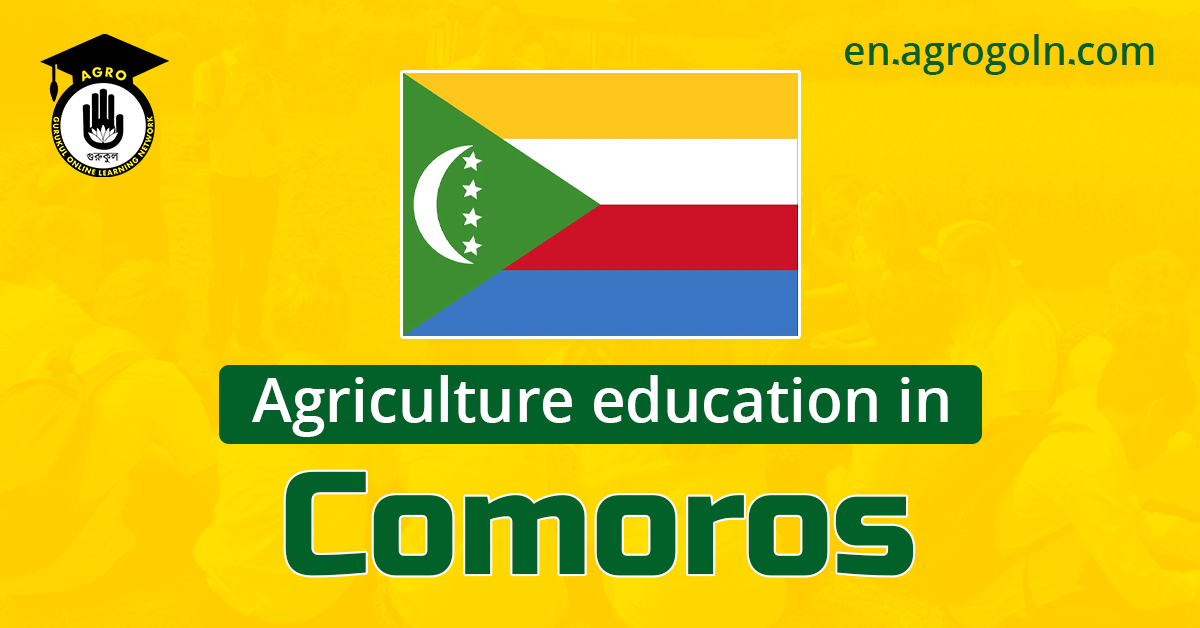Comoros, a beautiful and remote archipelago located in the Indian Ocean between Madagascar and the coast of Mozambique, has always been intimately tied to its agricultural roots. The islands’ tropical climate and rich volcanic soil have made it a fertile ground for agriculture, most notably for crops like vanilla, ylang-ylang, cloves, and coconuts. As the global economic landscape changes and as Comoros looks to secure its future, agriculture education has become an essential facet of its development. This article dives deep into the present scenario, challenges, and potential of agricultural education in Comoros.
1. Historical Context
The history of Comoros is deeply entwined with its agriculture. The islands have been producing and exporting cloves, vanilla, and ylang-ylang for centuries. This agricultural tradition, combined with trade winds that favored maritime commerce, allowed Comoros to thrive. However, with time, shifting global markets and lack of modern agricultural practices have impeded progress.
2. The Present State of Agriculture Education
In recent years, Comoros has acknowledged the importance of agriculture to its economy, food security, and employment opportunities. The recognition of agriculture’s centrality has made education in this sector all the more crucial. Today, agricultural education in Comoros can be categorized as follows:
- Primary and Secondary Education: Basic agriculture concepts are integrated into the school curriculum, ensuring every student gets a general understanding of the sector’s significance. Some schools have also introduced practical components, like school gardens, where students can apply their theoretical knowledge.
- Tertiary Institutions: While Comoros does not have a specialized university focusing exclusively on agriculture, certain institutions offer agriculture-related courses. Collaborations with regional and international institutions also facilitate knowledge exchange and research opportunities.
- Vocational Training: For those looking for hands-on training, vocational centers provide practical knowledge, teaching students about modern farming techniques, soil management, and pest control, among other skills.
3. Challenges in Agriculture Education
Like many developing nations, Comoros faces its fair share of challenges in elevating its agriculture education:
- Lack of Resources: Limited funding means outdated teaching materials, lack of laboratory equipment, and insufficient training for educators.
- Climate Change: Rising sea levels and changing weather patterns threaten the islands’ agricultural output, making it vital to introduce climate-resilient farming techniques into the curriculum.
- Brain Drain: Often, students who receive higher education abroad do not return, leading to a loss of potential educators and agricultural innovators.
- Land and Water Issues: The increasing scarcity of arable land and freshwater sources necessitate innovative farming methods, yet integrating these into education has been slow.
4. Potential Avenues and Solutions
While challenges exist, the potential for growth and innovation in agricultural education in Comoros is immense:
- Digital Education: With the digital revolution sweeping the globe, e-learning platforms can offer a vast array of resources to students and educators alike. By collaborating with international institutions, Comoros can provide online courses, workshops, and training sessions on modern agricultural practices.
- International Partnerships: Collaborations with agricultural universities and research institutions worldwide can help in curriculum development, faculty exchange programs, and joint research initiatives.
- Community Engagement: Engaging local communities in educational initiatives can lead to more context-specific and practical education. For instance, local farmers can offer invaluable insights into traditional farming methods that have been sustainable and effective.
- Focus on Women: Women play a crucial role in Comorian agriculture. By providing them with equal opportunities in agricultural education, Comoros can tap into a significant potential workforce.
5. Future Projections
Given the importance of agriculture in Comoros, the focus on its education will likely increase in the coming years. With the right investments and strategies, the archipelago can:
- Diversify its Agricultural Output: By educating farmers about various crops and techniques, Comoros can diversify and increase its agricultural exports.
- Boost Sustainable Agriculture: With the right training, farmers can adopt sustainable practices that are both eco-friendly and economically viable.
- Enhance Food Security: Improved agricultural practices will lead to better food security, ensuring that the islands are less dependent on imports.
Conclusion: Sowing Seeds for a Greener Tomorrow
For Comoros, agriculture is not just a means to an end; it’s an embodiment of the islands’ cultural, economic, and social fabric. Ensuring robust agricultural education is akin to safeguarding the islands’ future. With concerted efforts from the government, communities, and international partners, Comoros can pave the way for a green and prosperous future where its land and people thrive in harmony.
